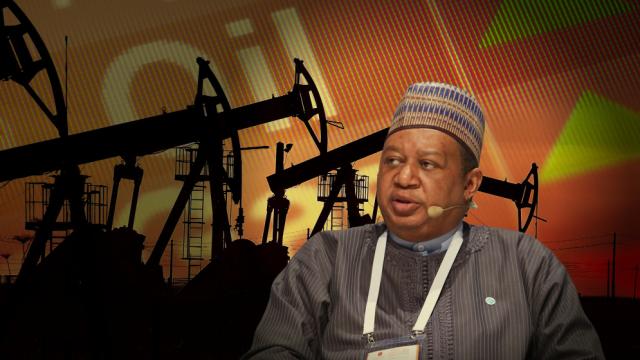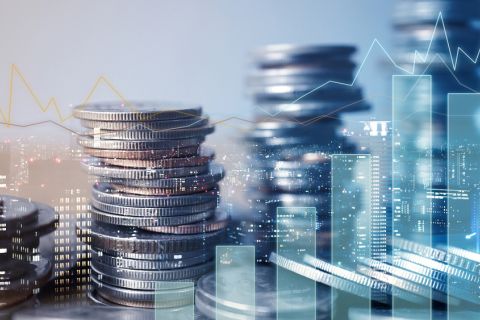
(Source: Shutterstock.com; image of Mohammad Barkindo by Prometheus72 / Shutterstock.com)
As countries across the globe continue easing lockdown restrictions related to the COVID-19 pandemic, OPEC Secretary-General Mohammad Barkindo expressed hope that recovery of the energy industry will be in full swing later this year.
“We are cautiously optimistic that the worst is over, even though the fragilities and the uncertainties with regards to recovery, whether it is a U-shaped, V-shaped or inverted hockey stick, are still uncertain,” Barkindo said during a recent energy dialogue organized by Abu Dhabi International Petroleum Exhibition and Conference.
“Nevertheless, I am hopeful by the end of this year we will begin to see some further semblance of stability restored to oil markets,” he continued. “Then we will be in a position to move into the next phase of sustaining that stability.”
Underlining the importance of the two-year agreement signed by OPEC and non-OPEC countries in April, which was revalidated earlier this month, Barkindo is confident that more stability would return to oil markets in the second half of the year. However, he noted additional work will be required to draw down existing oil inventories and help rebalance markets.
Barkindo applauded the response from oil producers globally and the historic supply cuts by OPEC members, following the meltdown of the oil and gas industry.
The unprecedented oil market imbalance that struck the industry in the wake of COVID-19 pandemic required an unparalleled response from producers. OPEC rose to the challenge, Barkindo said.
“The collaboration and cooperation was at the highest momentum,” he said.
Almost 20 million bbl/d of production was cut by both OPEC and non-OPEC producers in response to the “unprecedented demand destruction,” he added, marking the largest single supply adjustment of oil output in history.
Additionally, Barkindo stressed the importance of restoring oil market stability to attract new long-term investments, citing projections of a nearly 20% contraction, or $1.5 trillion, in energy investments as a result of the volatility and uncertainty around markets
“It is important we restore stability and sustainability to oil markets, not only for producing countries but also for consuming countries,” he said. “Both parties know that a lack of investment in energy today will sow the seeds of another energy crisis in the medium to long term. That would not be in the interests of the global economy.”
Highlighting the issue of sustainability and energy transition, Barkindo said that addressing carbon emissions would remain a central challenge for the oil and gas industry post-COVID-19. He urged the global community to address the twin challenge of climate change and energy poverty, but added he believes all energy sources would be needed to meet global demand for energy in the medium- to long-term.
Recommended Reading
TPG Adds Lebovitz as Head of Infrastructure for Climate Investing Platform
2024-02-07 - TPG Rise Climate was launched in 2021 to make investments across asset classes in climate solutions globally.
Air Products Sees $15B Hydrogen, Energy Transition Project Backlog
2024-02-07 - Pennsylvania-headquartered Air Products has eight hydrogen projects underway and is targeting an IRR of more than 10%.
NGL Growth Leads Enterprise Product Partners to Strong Fourth Quarter
2024-02-02 - Enterprise Product Partners executives are still waiting to receive final federal approval to go ahead with the company’s Sea Port Terminal Project.
Sherrill to Lead HEP’s Low Carbon Solutions Division
2024-02-06 - Richard Sherill will serve as president of Howard Energy Partners’ low carbon solutions division, while also serving on Talos Energy’s board.
Magnolia Appoints David Khani to Board
2024-02-08 - David Khani’s appointment to Magnolia Oil & Gas’ board as an independent director brings the board’s size to eight members.





